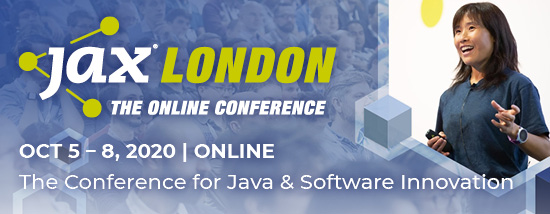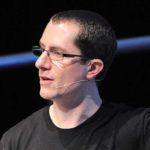A research study by The National Center for Women & Information Technology showed that “gender diversity has specific benefits in technology settings,” which could explain why tech companies have started to invest in initiatives that aim to boost the number of female applicants, recruit them in a more effective way, retain them for longer, and give them the opportunity to advance. But is it enough?
Three years ago, we launched a diversity series aimed at bringing the most inspirational and powerful women in the tech scene to your attention. Today, we’d like you to meet Maraja Fistanic and Pia Michel, the Founders of LegalTegrity.
Today’s Women in Tech: Maraja Fistanic and Pia Michel, Founders of LegalTegrity
 Maraja Fistanic is the founder and CMO of LegalTegrity. Previously, she was Managing Director of a European law firm group as well as Project and Marketing Manager of a law firm in Frankfurt a.M. Due to her passion for all things digital, she completed her MBA in Digital Transformation Management, focusing on the success of business model innovations in legal tech companies. Parallel to her studies, Fistanic was responsible for marketing & project initiatives in all areas of law for Germany and EU for the law firm AC Tischendorf. Her passion is the digitalization of legal services and the perfect customer service.
Maraja Fistanic is the founder and CMO of LegalTegrity. Previously, she was Managing Director of a European law firm group as well as Project and Marketing Manager of a law firm in Frankfurt a.M. Due to her passion for all things digital, she completed her MBA in Digital Transformation Management, focusing on the success of business model innovations in legal tech companies. Parallel to her studies, Fistanic was responsible for marketing & project initiatives in all areas of law for Germany and EU for the law firm AC Tischendorf. Her passion is the digitalization of legal services and the perfect customer service.
Pia Michel is part of the founding team of LegalTegrity. As a business graduate, she developed a passion for human resources and organizational development, later adding disruptive business models. Her focus became the management of crises (resilience) and the targeted development of value-based leadership competencies. For more than 15 years, Pia Michel accompanied mainly medium-sized companies and executives in Germany and abroad in change situations. For her, in addition to a good toolbox, inner attitude is the decisive success factor for the success of any project.
When did you first become interested in tech?
Pia: During my business studies, I worked as a research assistant at the Chair of Business Informatics of Prof. Dr. August Scheer and was fascinated by the possibilities offered by CIM. However, I never went deeper into the “inner workings”. For me, technology was mainly interesting from a user perspective, especially when it made my life easier and/or accelerated processes. Even today, user-friendliness is a very important selection criterion for all technical products. Later, as a representative of the HR consultancy Kienbaum within the “ada | fellowship program”, I had the chance to learn a lot about the background of technological change.
Maraja: I grew up with the idea that “tech” or digital things make life easier and constantly expand our horizons. However, I personally never noticed the constant development in the technical field as “change”. It just happened and was unproblematic. I think the bridge between tech and business is particularly exciting. With my MBA in Digital Transformation Management, I then chose the “deep dive” into the topic and dealt primarily with business model innovation in legal tech companies in order to apply it in practice. During my years in the law firm industry, I gained the impression that a “translator” between IT and user / management level is needed, as different languages are spoken here. This level of communication suits me and I really enjoy it.
How did you get to your current job? What different career paths have you taken?
Pia: My mother had many plans for her future and died very early. As a result, I learned to live in the present at an early stage. If I didn’t like my job, I tried everything to actively modify it. If that was not possible, I changed. Enduring unhappiness is not an option for me. As a result, I reinvented myself several times. My first job was as an interpreter for an English automotive supplier. In the process, I realized that I didn’t just want to reproduce what others said. After that, I studied business administration, accompanied the modernisation of 52 local governments in the Saarland, had my first employees in the sales of personnel services, then was in crisis counseling for families with severely disabled children, and finally, for many years, a consultant for professional reorientation, personnel and organisational development. My common thread is people and organisations that want or need to change and develop. My passion is positive psychology techniques, leadership and communication, disruptive business models through digitalisation.
Maraja: I ended up in the legal industry as a “non-lawyer” rather by accident. After graduating from high school, I took a temporary job in a law firm and quickly ended up in the marketing team during my business studies. Actually, I had completely different plans; first a gap year and then a master’s degree. But then I was offered an exciting job for the internationalisation project in a law firm. I worked both as the managing director of the resulting continental-European group of law firms and as the project and marketing manager of the German law firm. In a comprehensive software change project, I was able to broaden my experience in the tech sector and at the same time apply my knowledge of digital transformation from my MBA. As part of my master’s thesis, I tackled the topic of business model innovation in legal tech companies. I asked Thomas Altenbach, who was a lawyer at the same firm, for his feedback. After I decided to engage myself in the topic of digitalisation outside the legal world, Thomas told me about his business idea. As a result, I became a co-founder of LegalTegrity.
Are there women who have supported or encouraged you? Do you have a role model?
Pia: My mother was my first big role model, she had a “can’t do, doesn’t exist” attitude and found solutions for every situation. She encouraged me a lot and strengthened my conviction that everything is possible if you want it and put all your effort into it. Because of my severely disabled daughter, I had to accept that there are limits. I was lucky enough to meet many people who inspired me and who were a model for me to learn a lot from. In difficult times, I deliberately looked for role models, because if someone can basically do it, then I can do it too. In human resources consulting I had a supervisor who saw a lot more potential in me than I could have imagined at the time. She encouraged, supported and challenged me. I owe her my career as a consultant, trainer and coach for C-levels at eye level. Since then, I have consciously tried to pass on this gift.
Maraja: My parents have always supported me and are still important sparring partners for me today, both as emotional support and as reflective advisors. I also enjoyed a lot of responsibility and trust in the law firm environment at a very early stage. Although I worked hard for that, it is not a matter of course and I am very grateful for it. All the experience I gained there has had a lasting impact on me and my attitude in the professional here and now. Every day, I meet women in everyday life and in the business environment who are role models for me and inspire me. Privately, I draw a lot of strength from music and admire female singers with strong personalities, like P!nk, for example.
Enduring unhappiness is not an option for me. As a result, I reinvented myself several times.
Did you encounter any obstacles in your path?
Pia: My biggest “obstacles in my path” was my severely disabled daughter and the challenge of finding my way in a life that I had not wished for. Emma was my greatest teacher, she abruptly slowed me down, I became humble, questioned my previous values and learned to love unconditionally. Thanks to her, I have evolved from a primarily cognitive person to a very empathic person and this has greatly influenced my quality of work, especially in leadership issues.
Maraja: Of course, there were also difficult situations as a “young woman with ambitions” – especially as a business administrator among lawyers. Nevertheless, I never had the impression that obstacles were actively put in my way. There were hurdles, yes. But I succeeded in perceiving them as challenges that I could grow from. In retrospect, however, it’s also much easier to see it that way than I could in a specific situation at the time.
A day in Pia and Maraja’s lives
Pia: I am COO and co-founder of the legal tech startup LegalTegrity, which operates a digital whistleblowing solution as SaaS for medium-sized EU companies. I see myself in the role of enabling the organisation to run smoothly and grow successfully. At LegalTegrity, I drive the digitalisation of processes – without going into depth myself. It is important to me that processes run reliably and smoothly with consistent quality, even with a high number of interactions, and that potential errors are reduced. At the same time, as People Manager, I am responsible for personnel management and development, promoting team cohesion and living the company’s values.
Maraja: As already mentioned, I co-founded LegalTegrity with Pia Michel and Thomas Altenbach. My big strength is networking, so I took on the role of CMO and take care of marketing. But I am also very involved in sales processes and customer success. That means I develop wordings and strategies on how we acquire leads or communicate with our customers and partners. Our positioning in traditional and social media is an important and labor-intensive topic that keeps me busy. I am also responsible for our website and coordinate our presence at events and conferences.
Have you developed something?
Pia: Regrettably not, at least not directly. Indirectly yes, as a company we have developed a whistleblowing platform.
Maraja: I feel the same way as Pia: Directly, no, but during my studies, both in the Bachelor of Science and in the MBA, I dealt with the basics in Programming and in Data Analytics. And I worked very closely with the development & IT team during a software change project, as I was the project leader at the time.
Why are there so few women in the tech industry? What hurdles do women still have to overcome today?
Pia: I know a few women in the tech industry, many of them significantly younger than me. My guess is that, except in very conservative companies, filling positions is no longer so heavily influenced by stereotypes. However, as long as men don’t take parental leave as naturally as women, potential motherhood and associated potential time off will remain a hurdle for women at a certain stage in their lives.
Maraja: You come across clichés all the time. Even at school, they say girls can do languages, boys are good at science. In college, women are more likely to be in marketing and HR, while men do finance and accounting. I always found this classification totally stupid. I’m very talented in languages, but at the same time I’m also good at maths. That was the reason why I chose business administration back then. I liked the idea of linking the internationality of languages on an economic level with mathematics. In my career, I have also encountered gender stereotypes. At a legal business development training course, an external coach was once hired with the justification that he had once been a lawyer. As a young business graduate, it was much more difficult for me to communicate something about business development in the law firm environment.
I do believe that women more often have the feeling that they have to prove themselves and their competence. However, it is a fact that the tech world and its leadership positions are still dominated by men.
Which clichés/stereotypes have you encountered with regard to “Women in Tech”? What are the issues that arise from them?
Maraja: I am very often perceived as exotic, especially with the combination of legal and tech. I am neither a lawyer nor a computer scientist. How does that fit? I am often asked, “How did that happen, what are you doing anyway?” That was especially the case during my time at the law firm, and after business school. Most of my fellow students went into consulting. In most cases, however, I encountered curiosity on the other side, not reservation.
Would our world look different if more women worked in STEM?
Pia: I believe that diversity in any form (gender, age, origin, religion, etc.) accelerates social, professional, cultural and economic development. The more diverse perspectives that are incorporated, the better.
Maraja: I fully agree with Pia. Diversity and interdisciplinarity are needed at all levels and this goes beyond the category of man/woman. Of course, diversity and interdisciplinarity are not self-perpetuating, quite the opposite. Change is hard work. But isn’t it exciting to observe how differently the topic of digital transformation is also being driven forward in the various industries in Germany? The legal industry is definitely one of the slowest. That’s so absurd because lawyers are also consultants who are very close to companies.
Have the courage to change and the ambition to feel comfortable, accepted and respected in your skin, your position and your environment.
What does the future hold – will the diversity debate soon be history?
Pia: Even though I personally don’t like it, the human brain likes pigeonholing, it gives orientation and security. However, I assume that some differences will play no or only a minor role in perception over time. The shortage of skilled workers in some areas will certainly exert a positive pressure here and have a corresponding influence.
Maraja: Since diversity is so multi-faceted, the question is: What does “soon” mean? The nice thing is, we see something is moving. As I said, we’re not just talking about men or women, but also about origin or religion, age, education and so much more. Because of the multitude of levels, the debate will keep us busy for a long time.
Do you have any tips for women who want to enter the tech industry?
Pia: Don’t be better men, rather find your personal style. There’s no shame in getting a position as a token woman at first, be happy about it and make sure you take the responsibility and contribute to the positive image of women in tech. That way you can help make it easier for more women and get hired for their qualifications regardless of their gender.
Maraja: Again, I can only agree with Pia. Have courage, be confident and be yourself. It doesn’t feel good to pretend to fit into a job or a team. If you are at that point, dare to reconsider. Reflect on the reasons and be brave enough to say: I don’t want to go on like this. Have the courage to change and the ambition to feel comfortable, accepted and respected in your skin, your position and your environment. And my favorite tip: Get and give back support!
More Women in Tech:
- Women in Tech: Hadas Weinrib, Head of Marketing, Lightspin
- Women in Tech: Nahid Akhtar, Data Engineer at McMakler
- Women in Tech: May Goldstein, Senior Infrastructure Consultant at Red Hat
- Women in Tech: Sheeka Patak, Senior Software Engineer at Zendesk
- Women in Tech: Sabine Bär, Software Architect and Lead Dev
The post Women in Tech: “Get and give back support!” appeared first on JAXenter.
Source : JAXenter























